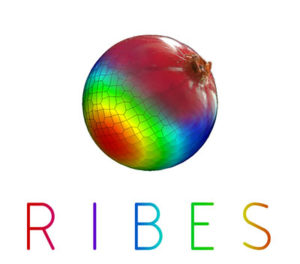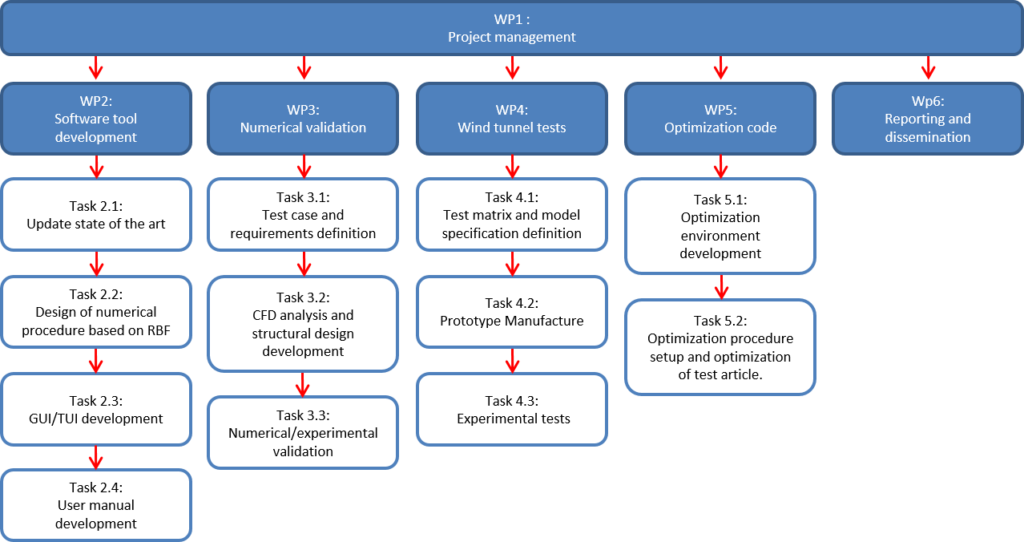
RIBES is the acronym of “Radial basis functions at fluid Interface Boundaries to Envelope flow results for advanced Structural analysis“. It is a research project led by the University of Rome “Tor Vergata” and funded within the EU 7th framework aeronautics programme JTI-CS-GRA (Joint Technology Initiatives – Clean Sky – Green Regional Aircraft). The project started December 2014 and was officially completed December 2016. Focus of research was the improvement of the accuracy of CFD-CSM based aeroelastic analysis methods. It, furthermore, allocated a significant amount of the budget on the setup of an experimental wind tunnel test campaign aimed to the development of a database for the validation of FSI numerical tools.
Structure of the project
The research covers three main topics:
- Development of a load mapping procedure;
- Setup of an experimental campaign.
- Development of a structural optimization procedure;
The activities on the first topic dealt with the development of numerical procedures able to perform correctly the load transferring process between CFD and FEM structural models.
The second topic is addressed to the creation of an experimental database to validate aeroelastic numerical analysis tools focusing the attention to the verification of the FSI methods ability to accurately capture the structural response of a complex mechanical system as a wing box structure. The objective was to create a test case representative of a typical aeronautical design problem.
For the last topic a shape numerical optimization procedure, able to modify the original design, was developed. A direct FEM based approach is used so that the FEM model becomes parametric by means of updating the cards in the solver input file (shape by updating nodal positions, properties by updating relevant fields).
The project is divided into four work packages dedicated to the technical activities and two for administration and dissemination. The activities related to the experimental tests were divided in two work packages. One related to the model design and FSI validation (WP3) and the other to the model manufacturing and wind tunnel measurements (WP4).

Partners of research were the RBF Morph™ software vendor, whose technology is at the base of the implemented load mapping and shape parameterization methodologies, the aerospace engineering consulting firm Design Methods™, that supported the numerical/experimental activities, and the University of Naples “Federico II”, which was in charge of the experimental measurements.
For further information please read the RIBES project summary.